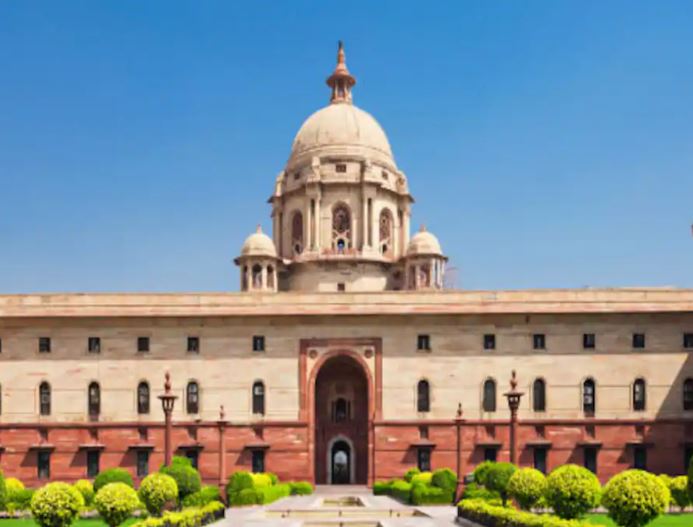New Delhi: Leaders of some major political parties held hectic parleys Tuesday ahead of a meeting called by West Bengal chief minister Mamata Banerjee to forge a consensus for fielding a joint candidate against the NDA in the presidential election, a move that has exposed the fault lines within the opposition.
Banerjee, the Trinamool Congress supremo, and leaders of two Left parties met NCP chief Sharad Pawar at his residence separately to try and convince him to be the common opposition candidate for the top constitutional post.
The Maratha strongman, who has friends across the deeply divided political spectrum, however, turned down the proposal, sources in the opposition camp said.
The West Bengal chief minister is in the national capital for the meeting she has convened on Wednesday to explore the possibility of formulating a common strategy with other opposition parties for the presidential poll where the BJP-led NDA has an unmistakable edge given its strength in Parliament and state and union territory assemblies.
Banerjee’s decision has, however, come in for sharp criticism by the Left, a TMC adversary in West Bengal.
Miffed at the TMC supremo Mamata Banerjee’s “unilateral” decision to call a meeting for discussion on a joint presidential nominee, the CPI(M) and the CPI on Tuesday said they will send their MPs to the opposition meet to be held here on June 15.
CPI(M) general secretary Sitaram Yechury and CPI general secretary D Raja said the top leadership will not attend the meeting called by the Trinamool Congress (TMC) chief.
The CPI(M) will be represented in the meeting by the leader of the party in Rajya Sabha, Elamaram Kareem.
Yechury has also written a letter to Banerjee saying such meetings of opposition parties have always followed a procedure of prior mutual consultations to enable the maximum participation of those wishing to join.
“However, in this instance, we received a unilateral communication informing the date, time, venue and agenda. Your letter mentions ‘a fruitful confluence of opposition voices is the need of the hour’. This could have been better achieved if there had been mutual consultation and a proper time to enable party leaders to reschedule their prior commitments to attend such a meeting.
“Unfortunately, there were only three days between the receipt of your letter and the date of the meeting,” said Yechury.
An amiable Pawar, who has good personal equations with Narendra Modi despite his public criticism of the prime minister on political issues, declined the offer to become the joint opposition candidate. He had rejected such an offer in 2017, too.
“I have been informed that Pawar will not be the opposition face for the presidential poll. Other names are under consideration,” said Yechury after meeting the NCP boss.
Apart from Yechury, Pawar met CPI general secretary D Raja, and NCP leaders Praful Patel and P C Chacko during the day and conveyed to them his decision to not contest the election.
The Congress, despite its reservations over Banerjee unilaterally convening the meeting, is likely to send its representatives. Congress sources said Mallikarjun Kharge, the leader of opposition in Rajya Sabha, Jairam Ramesh and Randeep Surjewala may attend the meeting.
The Congress, in spite of its diminution following a string of electoral losses, retains its preeminence among opposition parties because of its pan India presence. It was also the first off the blocks to start exploring the possibility of putting up a joint opposition candidate for the presidential election.
Soon after the Election Commission announced the schedule for the election, Congress president Sonia Gandhi had nominated Kharge as the interlocutor to engage other opposition parties in discussions.
Banerjee, whose relations with the Congress have soured since her return to power for a third straight term in West Bengal, gave a short shrift to the main opposition party and called a meeting to discuss the opposition strategy for the presidential election.
Several other opposition parties are likely to attend the meeting called by Banerjee and take forward the discussion on fielding a common candidate.
The election of the President of India will be held on July 18.
With numbers on its side–the ruling NDA has about half the votes of the electoral college–and the possible support of fence-sitters like the BJD, AIADMK and YSRCP, its candidate will likely sail through the contest.
PTI
